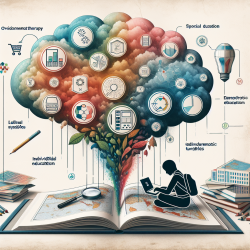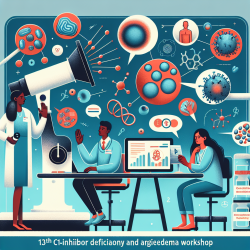Self-reflectivity, the process of reflecting on one’s own experiences and circumstances, is a cornerstone of professional growth in psychotherapy. The research article "Self-reflectivity: a moment of professionalization in psychotherapy training" by Finger-Ossinger and Löffler-Stastka (2018) offers valuable insights that can significantly enhance the skills of practitioners. This blog post will delve into how you can implement these research outcomes to improve your professional practice.
The Importance of Self-Reflectivity
The European Association of Psychotherapy (EAP) emphasizes self-reflectivity as a critical competency for psychotherapists. Self-reflectivity allows practitioners to understand how their past and present experiences shape their desires, thoughts, and convictions. This ability is not only vital for personal growth but also enhances therapeutic effectiveness.
Key Findings from the Research
The study analyzed self-reflection reports from 41 students who completed a blended-learning preparatory course. The findings highlighted several key areas that promote self-reflectivity:
- Self-awareness Lessons: These lessons were found to be crucial for developing self-reflectivity. Students who engaged deeply in self-awareness activities showed significant improvement in their ability to reflect on their experiences.
- Affective Integration: Emotional engagement in the learning process was a significant driver for self-reflection. Students who felt emotionally connected to the material were more likely to reflect deeply on their experiences.
- Blended Learning Environment: The combination of online and in-person elements provided a rich environment for self-reflection. The flexibility and variety of learning formats helped students engage with the material in diverse ways.
Implementing These Findings in Your Practice
To leverage these insights for professional growth, consider the following strategies:
- Incorporate Self-awareness Exercises: Regularly engage in self-awareness exercises to reflect on your experiences and how they influence your professional practice. This could involve journaling, mindfulness practices, or guided reflection sessions.
- Emotional Engagement: Foster an emotionally engaging learning environment. This can be achieved through interactive and participatory learning activities that encourage emotional investment.
- Utilize Blended Learning: Incorporate a mix of online and in-person learning activities. This approach not only provides flexibility but also caters to different learning styles, enhancing overall engagement and self-reflectivity.
Encouraging Further Research
While the findings from this study are promising, further research is needed to explore the long-term impact of self-reflectivity on professional practice. Practitioners are encouraged to engage in ongoing research and contribute to the growing body of knowledge in this area.
Conclusion
Self-reflectivity is a powerful tool for professional growth in psychotherapy. By incorporating self-awareness exercises, fostering emotional engagement, and utilizing blended learning environments, practitioners can significantly enhance their self-reflective abilities and, consequently, their therapeutic effectiveness.To read the original research paper, please follow this link:
Self-reflectivity: a moment of professionalization in psychotherapy training.










